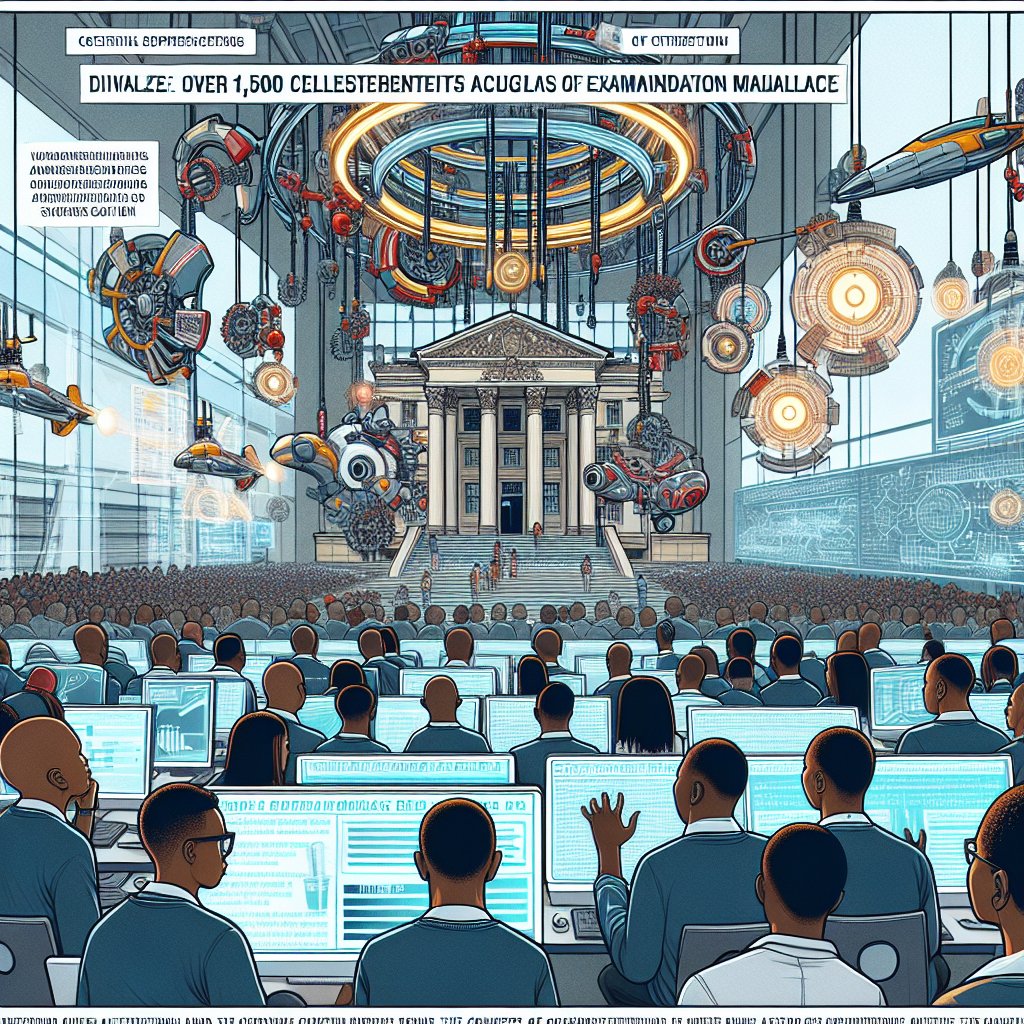Image created by AI
Over 1500 UNISA Students Await Disciplinary Action for Exam Misconduct
The University of South Africa (UNISA) is poised to take decisive action against more than 1,500 students who have been charged with academic dishonesty during examinations. These disciplinary hearings, scheduled to commence in March, have created considerable unrest amongst the student body, particularly for those on the brink of graduation, whose future employment prospects are in limbo due to the suspension of their qualifications.
This situation places immense stress on affected students, many of whom have been suspended for up to two years – a significant setback in one's academic and professional journey. The seriousness of the alleged offences dictates the length of these suspensions, and UNISA has been stringent in its approach to preserving academic integrity.
The crux of the controversy lies in the students' accusations towards UNISA – specifically, that the university has implemented a "blanket approach" to dealing with various offences, catalyzing a wave of inconsistencies in how students are penalized. The university's response has been to point to its existing processes and student engagement platforms, putting the onus on appropriate internal channels for such dialogues.
This formal standoff intensified with a letter penned by affected students on 22 February expressing concerns over the handling of the misconduct charges. Furthermore, the Student Representative Council (SRC) has also alleged that UNISA management, including the Dean of Students, Dr. Olwethu Sipuka, has not adequately addressed student grievances.
The narrative of administrative confusion is reinforced by the back-and-forth communication of suspension notices and warnings. For example, on February 10, specific students charged with similar allegations had their suspensions retracted and received warning letters instead. Nonetheless, as of the end of February, UNISA maintains that disciplinary hearings will proceed as planned – a sentiment not uniformly received as complaints over notices not yet received by certain students emerge.
UNISA has navigated tumultuous waters recently. The office of the registrar has been subject to scrutiny following Professor Moloko Sepota assuming the acting role amidst Professor Steward Mothata's dismissal due to a fallout with the university council and vice-chancellor.
The allegations of blanket charging stem from the procedure surrounding Chapter 3 of the Student Disciplinary Code, which encapsulates regulations against misconduct. Dissatisfaction among the students arose out of a perceived failure by the Registrar to apply past precedents fairly, suggesting that all students found guilty of violating specific rules under Chapter 3 faced suspension, without due consideration to the varying degrees of their actions.
The heated issue at hand is not just about academic integrity but also touches on the principles of natural justice – students with pending disciplinary marks since the second semester of the previous year argue for the right to equality. They demand resolution and the opportunity to graduate, emphasizing their constitutional rights.
Students are cognizant of the different approaches taken by UNISA – from retracting disciplinary actions to issuing warnings for students implicated in cheating for other modules. Nonetheless, this only further fuels the flames of unfair treatment allegations.
UNISA’s standpoint is that each suspension of the 1,541 students was based on the individual merits of the cases, and the university contends that their process is both fair and consistent. They justify issuing warning letters for minor offences by referring to their policy on academic integrity, which outlines various corrective measures for different levels of transgressions.
The saga unfolding at UNISA poses significant questions regarding fair process, equality before the disciplinary bodies, and the implementation of consistent policies across the board. This is a complex, multifaceted issue that puts the future of many students at stake and challenges the integrity of the university's administrative processes. As hearings are set to proceed, all eyes will be on UNISA's capacity to navigate these troubled waters, deliver justice, and restore its amicable relationship with its student body.











tshepiso
1 years, 1 months, 28 days ago
unisa is not fair. their sotfware is not accurate